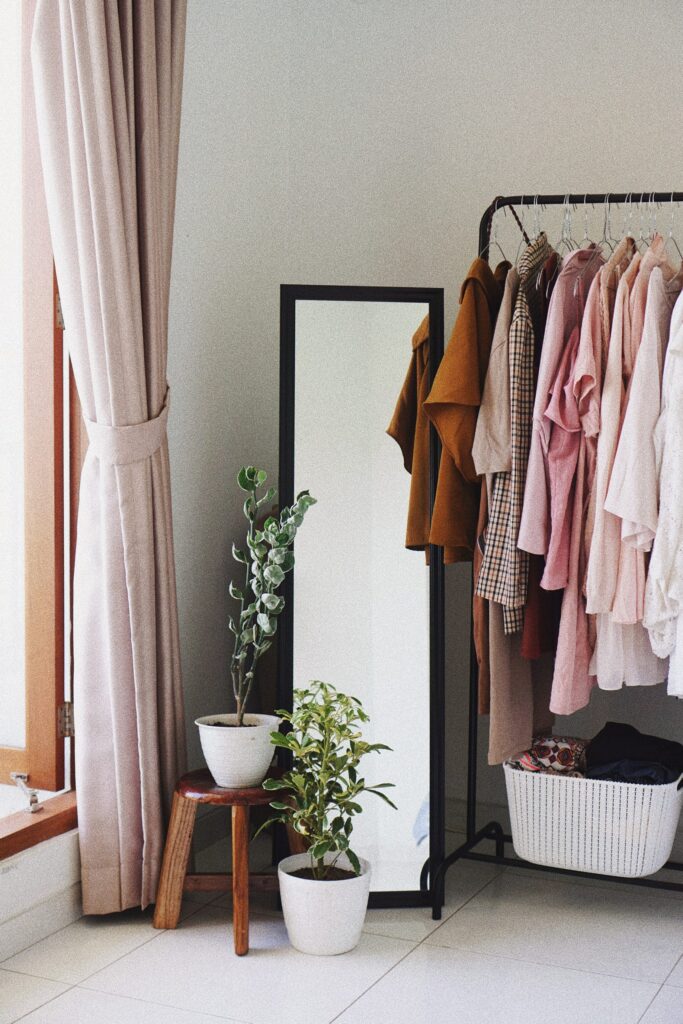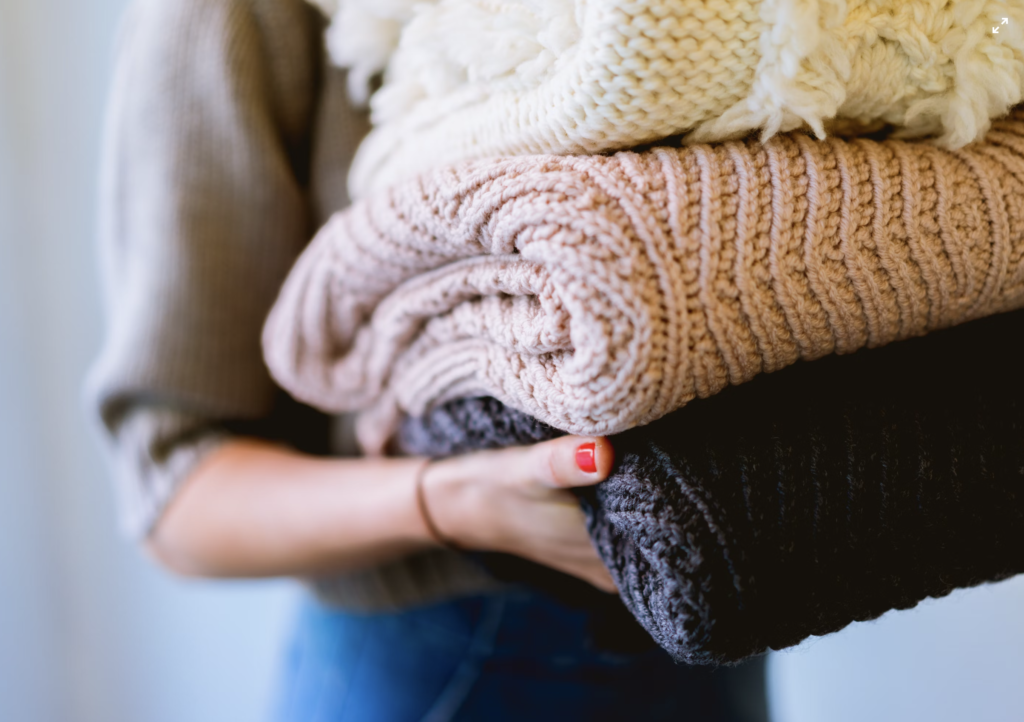Have you ever thought – I have all these things to get rid of but they’re too good to donate? Clothing with tags still on, leather bags, shoes that have never been worn? And you don’t really want just to just put them into a charity bin.
So instead you decide to try and sell your second-hand clothes or give them to friends but it just ends up kicking around your place? I get it. You spent your hard-earned cash on it. It’s nice stuff!
Let me ask you a question, if you had so much money that you couldn’t possibly use it all, would you give $1000 to charity? Of course, you would. And wouldn’t that feel bloody good?
Well, my hot take is that all those great items of clothing with tags still on, designer bags and unused boots are exactly what you should be donating to charity. They are an opportunity for generosity. The stuff that people experiencing hardship want to receive, the stuff that op-shoppers want to buy.
And although you may think bagging it up to donate is going to feel like an epic failure on your part, all the science on the subject disagrees.
Donating valuable stuff isn’t just going to make other people happy; it will likely have a positive impact on your own mental health.
Finding Organisation

The research tells us that donating feels good
I’m not a researcher, so please go ahead and fact-check me, but I am a journalist-by-trade who knows a lot about this subject. Let me give you a quick rundown of where the science on this topic is.
Ok, let’s do this. Basically, ‘giving’ (time, money, resources) activates the release of certain chemicals in the brain, such as oxytocin and that can help to reduce stress and improve overall mood. I’m not going to go too much into that because you’re smart people who can check out the research, and who know better than to trust a journalist-turned-home-organiser for data. But I will link some interesting stuff
This 2021 study found, “A growing body of literature suggests that volunteering and charitable donations are related to individuals’ psychological well-being.”
Another study did functional MRI scans on donors’ brains before and after donating money and watched what parts of their brains became active and basically came to the same conclusion. Generosity makes you happy. You can read all about that one here.
The Cleveand Clinic are a great place to go for an overall insight into what the science says – you can read that article here.
Little tip, if I may, when you are trying to be a responsible online researcher, websites that end in .org and .gov are usually a pretty good place to start.
So, now we know the benefits of donating. But what are your other options when it comes to unwanted stuff?
But, what if I want to sell my second-hand clothes
So – you want to sell your unwanted stuff. I get it. It was expensive, it’s still good and you paid good money for it! Great, I’m going to ask you some questions that may help you decide if it’s the right path for you.
- Do you consider your home and life to be pretty under control?
- Do you have the space to store a bunch of items ‘to sell’ where they won’t encroach on your home’s day-to-day function?
- Are the items worth more than $30 second-hand?
- Are you good at taking nice pictures, replying to messages, and organising pick-up times?
- Do you have lots of spare time?
- Are you hard-up for cash?
I think you can see where this is going. If you answered ‘yes’ to some or most of these questions – jump on Marketplace now, get listing. But if you’re a majority ‘no’ person – my professional opinion is that you’re going to get a lot more satisfaction, happiness and peace by just donating the stuff. I have never had a client who has successfully decluttered by selling second-hand clothes – or anything. But there are some exceptions – more on that below.
Ok, maybe I’ll give it to my friend/sister/cousin
Awesome, I love a good hand-me-down. But you should probably ask these questions.
- Is this person experiencing hardship?
- If they asked you to store a bunch of items for them in your home, do you have the space to do that?
- Are you going to see them in the next week?
- Do they have a manageable amount of stuff in their house?
- Do they want your hand-me-downs?
If you answered ‘yes’ to some or most of these questions – pack it up, pop it in your passenger seat (not the forgotten-boot-of-doom) and organise to drop it over.
What about doing a market stall?
100% – This is the exception. I am a huge believer in getting involved with markets. You can pack up a bunch of stuff, set up a stall, and spend the day chatting and perusing the other stalls. It’s a win-win. Especially if you choose the right market for what you have. My Kids Market is a great one, and there are always Vintage and Fashion markets around. Just make sure that you price everything to sell, drop what you don’t to the op shop afterwards and try not to bring too much stuff you don’t need home.
But what about keeping it?
Sure, you can keep the stuff with tags on it in your home. But chances are, that’s not going to make you feel good either. Apart from the daily reminder that you wasted your money/time/effort, there is research to suggest that the stress hormone cortisol spikes in women who have cluttered homes. The amount of housework adults have to do is directly related to the amount of ‘stuff’ in their homes and wardrobes are supposed to function easily. Keeping unwanted stuff is not going to make you feel good.

I remove bags and bags from my clients’ homes every single day and I have never once had someone say that they regret donating something.
But I have had a client who donated 20+ straw hats to our local op shop and gets a kick out of seeing them worn around Ettalong. I do have clients who cry with happiness when they see their decluttered spaces, and I have seen people gasp with joy when they find amazing things at their local charity shop. So why not make your life easier by letting it all go rather than fielding Marketplace messages that all just say – “is this still available?”
Check out my digital products by clicking any of the pics below

